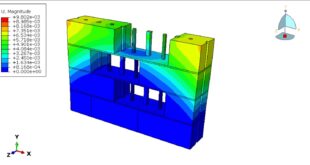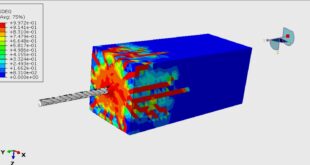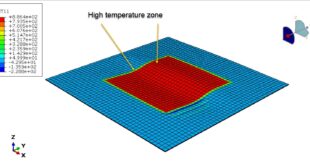Fire simulation in Abaqus is a powerful tool for analyzing the effects of fire and thermal loads on structures and materials. Abaqus, a widely used finite element analysis (FEA) software, provides advanced capabilities to model heat transfer, thermal-structural coupling, and material degradation under high-temperature conditions. This makes it suitable for simulating fire scenarios in various engineering applications, such as building safety, aerospace, automotive, and industrial design
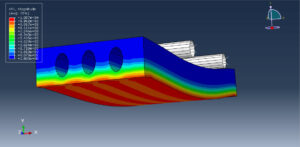
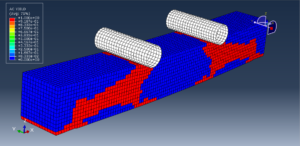
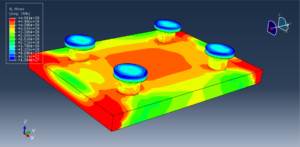
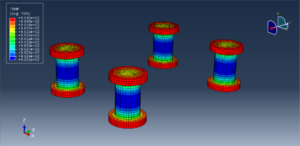
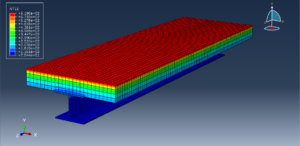
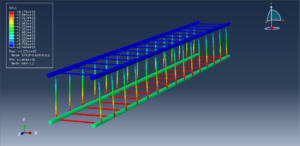
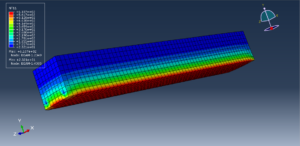
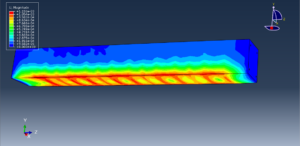
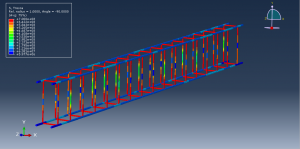
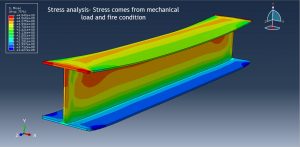
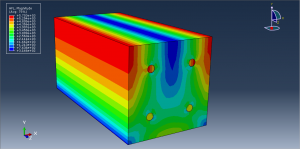
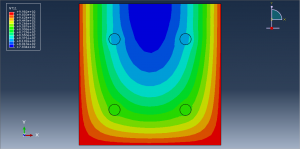
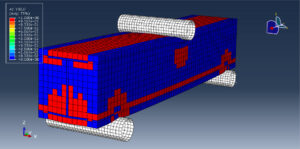
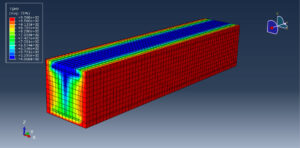
Key Features of Fire Simulation in Abaqus
Heat Transfer Analysis
Abaqus can model conduction, convection, and radiation heat transfer mechanisms
It allows for transient or steady-state thermal analysis to predict temperature distribution over time
Thermal-Structural Coupling
Abaqus supports coupled thermal-structural analysis, where thermal expansion, stress, and deformation due to temperature changes are calculated
This is critical for understanding how materials and structures behave under fire conditions
Material Modeling
Abaqus includes material models that account for temperature-dependent properties, such as thermal conductivity, specific heat, and mechanical properties (e.g., Young’s modulus, yield strength)
It can also model material degradation, such as charring, melting, or phase changes, which are common in fire scenarios
Fire Loads
Users can define fire curves (e.g., standard fire curves like ISO 834 or custom time-temperature profiles) to simulate realistic fire conditions
Heat fluxes and boundary conditions can be applied to represent fire exposure
Smoke and Gas Flow (with Abaqus/CFD)
For more advanced fire simulations, Abaqus/CFD can model fluid dynamics, including smoke and gas flow, to analyze fire spread and smoke movement
Failure Analysis
Abaqus can predict failure modes such as buckling, cracking, or collapse due to thermal stresses and material degradation
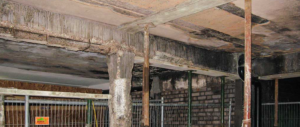
Applications of Fire Simulation in Abaqus
Structural Fire Engineering: Assessing the fire resistance of buildings, bridges, and other structures
Aerospace: Evaluating the performance of materials and components under high-temperature conditions
Automotive: Simulating fire scenarios in vehicle design for safety compliance
Industrial Safety: Analyzing fire risks in industrial facilities and equipment
Advantages of Using Abaqus for Fire Simulation
A) High accuracy in predicting thermal and structural behavior
B) Flexibility in modeling complex geometries and material behaviors
C) Integration with other Abaqus modules for multiphysics simulations
By leveraging Abaqus for fire simulation, engineers can design safer and more resilient structures, ensuring compliance with fire safety standards and reducing risks in fire-prone environments
In this package, you will learn all types of fire modeling, including sequential and direct methods for many materials, such as concrete, steel, and wood.
The package contains twelve separate tutorials, each tutorial includes cae, inp, code, paper, reference of the materials, and step-by-step English video. You can check the titles of the tutorials below
A) Fire analysis of a Steel-Timber composite beam in Abaqus
B) Simulation of hollow-core slabs under fire conditions and four-point bending in Abaqus
C) Simulation of wood timber beam under fire and mechanical bending load in Abaqus
D) Simulation fire analysis of a steel joint with bolt connectors in Abaqus
E) fire analysis of a composite beam(RC concrete slab+ steel beam)under bending load in Abaqus
F) Fire simulation in Abaqus-Thermal and Structural analysis of a steel frame
G) Simulation of RC Beams during Fire Events Using a Fully Coupled Thermal-Stress Analysis in Abaqus
H) Simulation of full 3D fire analysis of a Reinforced concrete beam in the Abaqus-Sequential Coupling Technique
I) Simulation of a steel beam under fire and mechanical load condition in Abaqus
J) Simulation of fire condition over an RC beam(concrete+bar) in Abaqus-Thermal analysis
K) Simulation Composite beam(Concrete and steel beam) under fire conditions in Abaqus-Thermal and Stress analysis
M) Simulation fire analysis of the concrete beam in the Abaqus- Temperature and Stress analysis
The price of this package is Ninety-Six Euros, you can use a PayPal account, a Visa, or a Mastercard for the payment. If you are interested in the fire package, send us an email here: abaqusfem.com@gmail.com
 Abaqus tutorials Abaqus tutorials
Abaqus tutorials Abaqus tutorials
